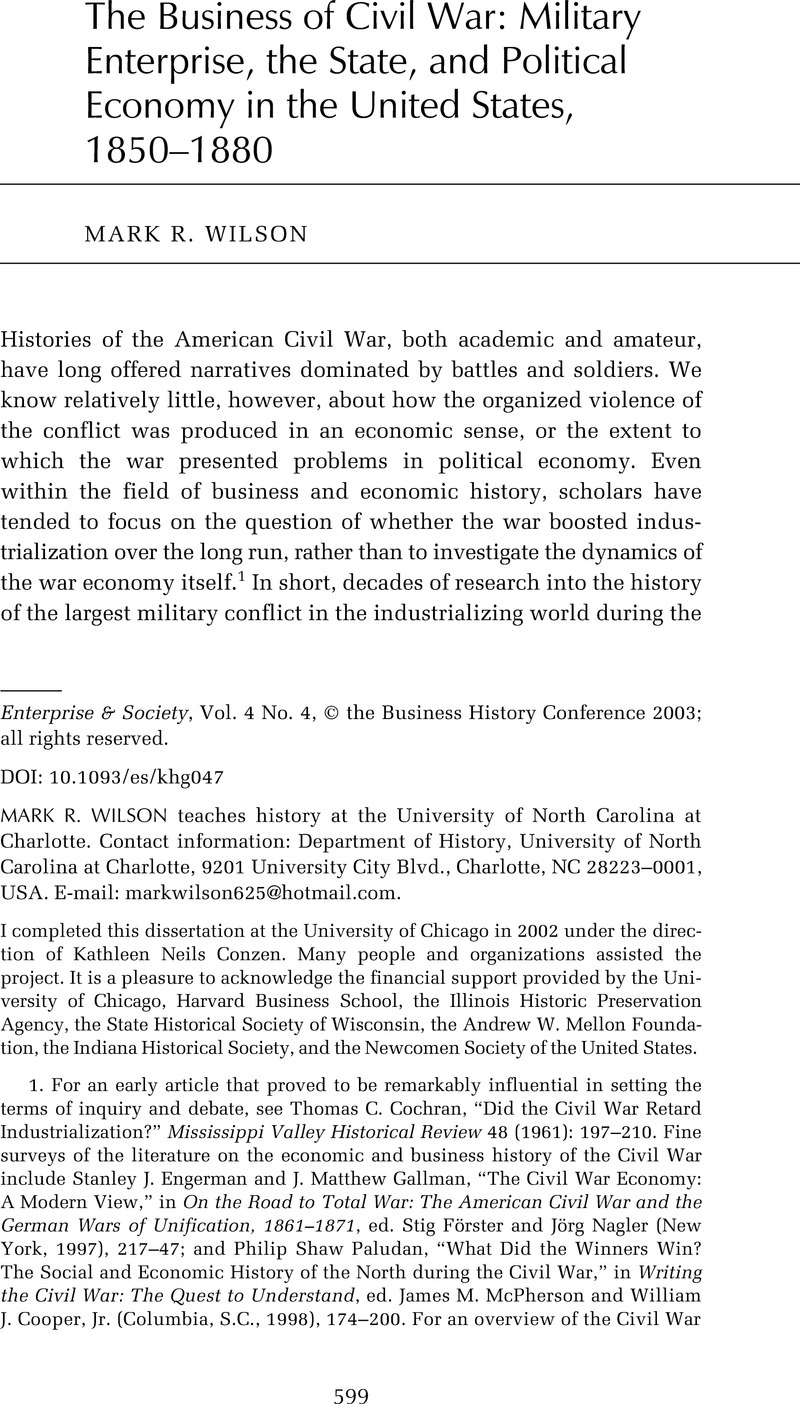Published online by Cambridge University Press: 18 February 2015

1. For an early article that proved to be remarkably influential in setting the terms of inquiry and debate, see Cochran, Thomas C., “Did the Civil War Retard Industrialization?” Mississippi Valley Historical Review 48 (1961): 197–210.CrossRefGoogle Scholar Fine surveys of the literature on the economic and business history of the Civil War include Engerman, Stanley J. and Matthew Gallman, J., “The Civil War Economy: AModern View,” in On the Road to Total War: The American Civil War and the German Wars of Unification, 1861–1871, ed. Förster, Stig and Nagler, Jörg (New York, 1997), 217-47Google Scholar; and Paludan, Philip Shaw, “What Did the Winners Win? The Social and Economic History of the North during the Civil War,” in Writing the Civil War: The Quest to Understand, ed. McPherson, James M. and Cooper, William J. Jr. (Columbia, S.C., 1998), 174–200.Google Scholar For an overview of the Civil War mobilization that makes good use of the published literature, see Koistinen, Paul A. C., Beating Plowshares into Swords: The Political Economy of American Warfare, 1606–1865 (Lawrence, Kans., 1996).Google Scholar
2. See Bensel, Richard Franklin, Yankee Leviathan: The Origins of Central State Authority in America, 1859-1877 (New York, 1990), 187-88, 234.Google Scholar
3. Skowronek, Steven, Building a New American State: The Expansion of National Administrative Capacities, 1877-1920 (New York, 1982), 19–35 CrossRefGoogle Scholar; Bensel, , Yankee Leviathan, 236.Google Scholar
4. For a recent discussion of the early American state that makes the same point and begins to explain the importance of the military, see Katznelson, Ira, “Flexible Capacity: The Military and American Statebuilding,” in Shaped by War and Trade: International Influences on American Political Development, ed. Katznelson, and Shefter, Martin (Princeton, N.J., 2002), 82–110.Google Scholar